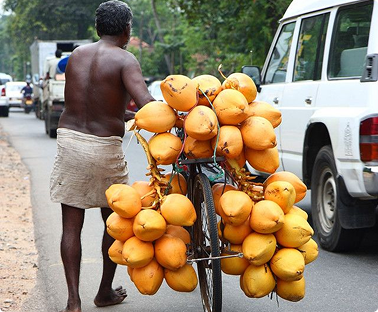Insights & Updates: Stay Informed with JLAB Metrics
curated insights and timely updates from the world of finance and business.
Maximizing the Potential of Sri Lanka’s Growing SME Sector: Are We Getting the Best Out of It?
Introduction
Small and Medium Enterprises (SMEs) are integral to Sri Lanka’s economy, contributing significantly to sectors like manufacturing, agriculture, services, and exports. Their participation in value chains boosts competitiveness and drives economic growth. While new business registrations have been increasing, questions remain about the long-term sustainability of SMEs and their actual contribution to GDP, which has been an ongoing concern for decades.
According to the Asian Development Bank’s Asia SME Finance Monitor (2014), based on the Ministry of Finance and Planning’s 2012 Annual Report, SMEs were responsible for 30% of GDP, 20% of exports, and 35% of the workforce.
By 2024, this sector has expanded significantly, contributing 52% to GDP and providing employment to 45% of the workforce. With SMEs now making up over 75% of all registered businesses, their role remains pivotal in Sri Lanka’s economy, but are we leveraging their full potential?
Growth in Business Registrations
Over the past decade, Sri Lanka has seen consistent growth in the number of registered businesses, increasing from 4.79 million in 2011 to 6.3 million by 2022. This growth highlights the entrepreneurial spirit and the increasingly favorable environment for business development. The period between 2012 and 2016 showed a steady upward trend, with a significant peak in 2021, marking 354,000 new registrations—likely a result of post-COVID economic shifts and the rise of digital and small-scale businesses. While the growth rate slowed in 2022, it reflects the broader economic challenges faced by the country.
However, despite the growing number of registrations, many SMEs remain at the lower tiers of global value chains (GVC), securing only a limited share of the value. These businesses often face challenges beyond their control, such as limited technological capabilities, vulnerability to market shocks, and stagnant levels of value addition, which hinder their ability to scale and thrive.
Sri Lanka in the Global Value Chain
Sri Lanka’s integration into the Global Value Chain (GVC) has been largely driven by labor-intensive and resource-based sectors, with SMEs playing a key role in areas such as raw material supply, manufacturing, logistics, and retail. The country has seen significant contributions from the apparel manufacturing, tea, and IT/BPO sectors, capitalizing on its strategic location, skilled workforce, and trade agreements.
Despite progress, several challenges persist. The apparel sector, for example, has focused on ethical manufacturing and sustainability through initiatives like “Garment Without Guilt.” However, other industries, such as tea and agriculture, struggle to maintain competitiveness. Sri Lanka remains a commodity supplier in the tea market, with only a few internationally recognized brands. Although 50% of Sri Lanka’s tea exports are value-added products (such as organic tea, green tea, and flavored teas), the country’s limited brand presence raises concerns about its long-term competitiveness in the global market
The IT and Business Process Outsourcing (BPO) sectors have emerged as bright spots in Sri Lanka’s GVC integration, with significant growth in areas such as fintech, cloud computing, and data analytics. Sri Lankan firms have successfully established themselves in high-value markets like the United States, the United Kingdom, and Australia, contributing to the country’s increasing relevance in the digital economy.



The Path Forward
To truly unlock the potential of SMEs, it is crucial to ensure that businesses not only scale but also integrate effectively into global value chains. This requires more than just expanding the number of new business registrations; it calls for informed strategies that focus on value-added growth, resilience, and long-term sustainability.
Companies across sectors must explore avenues for improving their operational efficiency, access to finance, market competitiveness, and technology adoption. Leveraging detailed research, market insights, and tailored advisory services can help SMEs navigate these challenges. Such support can also aid in enhancing SMEs’ ability to assess and manage risks, improve their value proposition, and tap into emerging global opportunities.
While Sri Lanka’s SME sector has shown remarkable growth and has made valuable contributions to the economy, there are still many untapped opportunities. The discrepancy between rising business registrations and the challenges these enterprises face in integrating into the global value chain highlights the need for targeted interventions. With the right expertise and strategic support, SMEs can overcome these hurdles, driving sustained economic growth and enhancing their global competitiveness.


Let’s Build Success Together!
Whether you're launching, scaling, or transforming — JLAB Metrics is your trusted growth partner.
Partnering with businesses across the globe, we deliver data-driven insights, financial expertise, and tailored strategies to drive sustainable growth, optimize performance, and create lasting impact in diverse markets
Solutions Start here
Reach out to us for tailored business consultations to drive real growth
